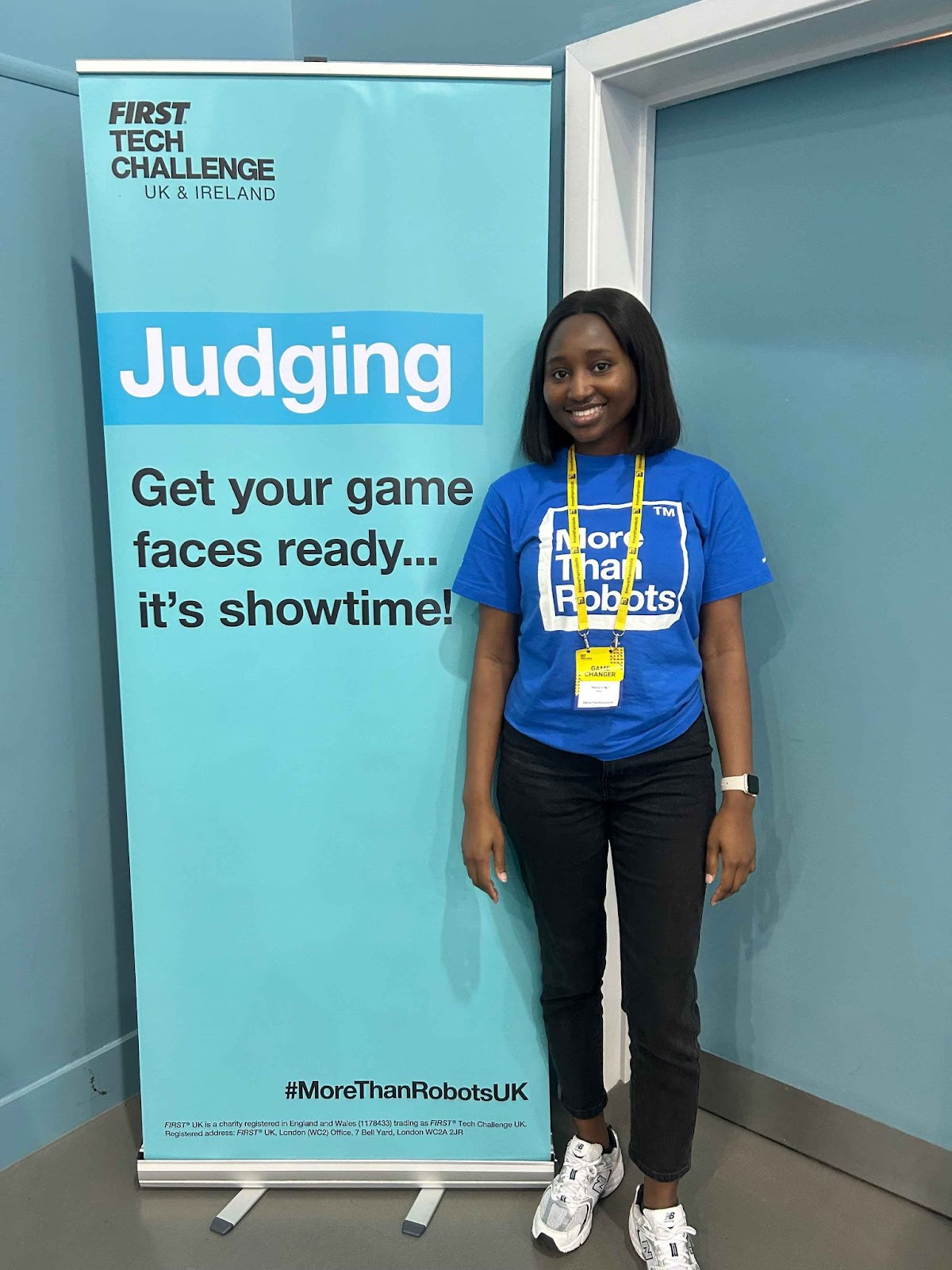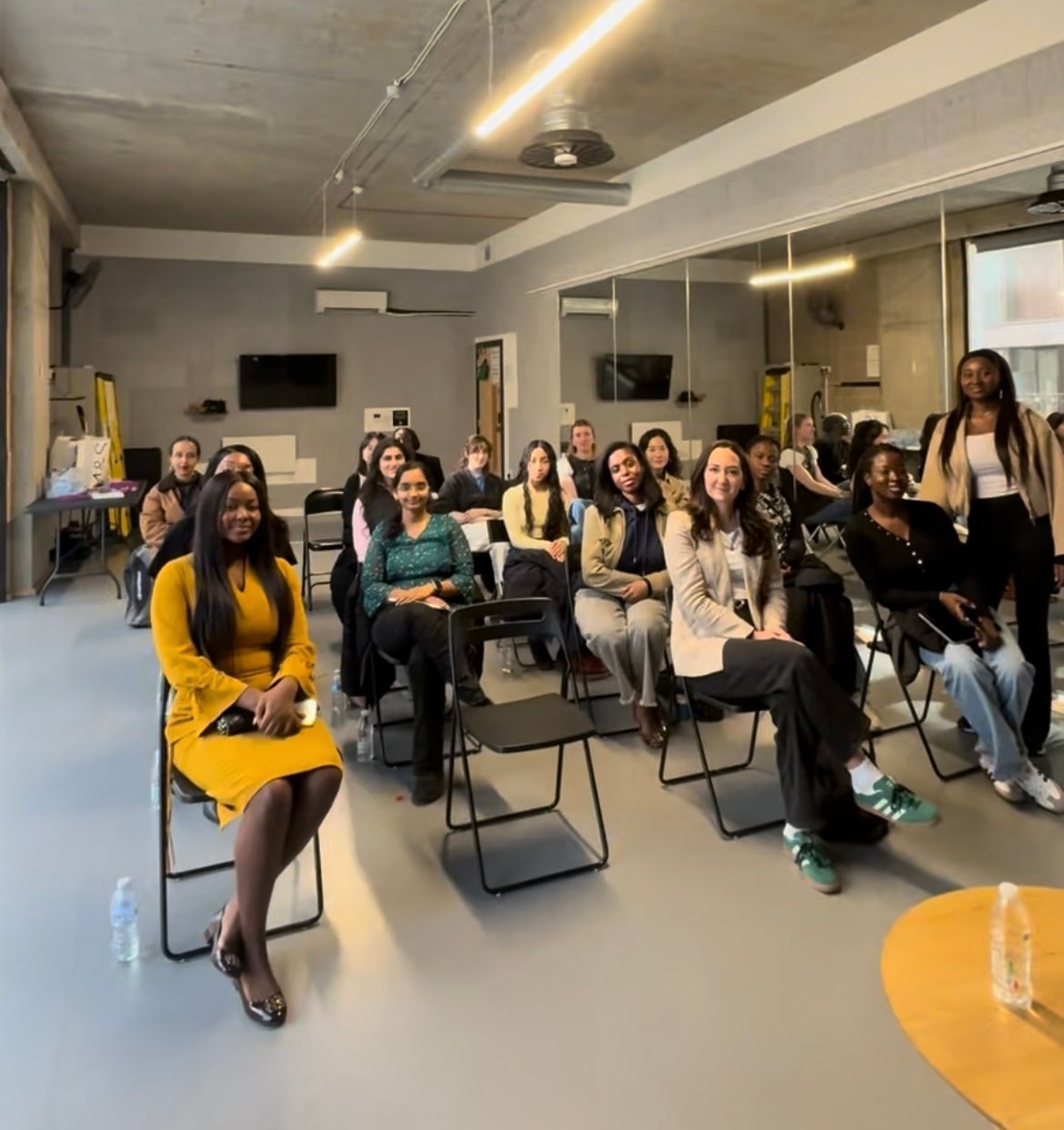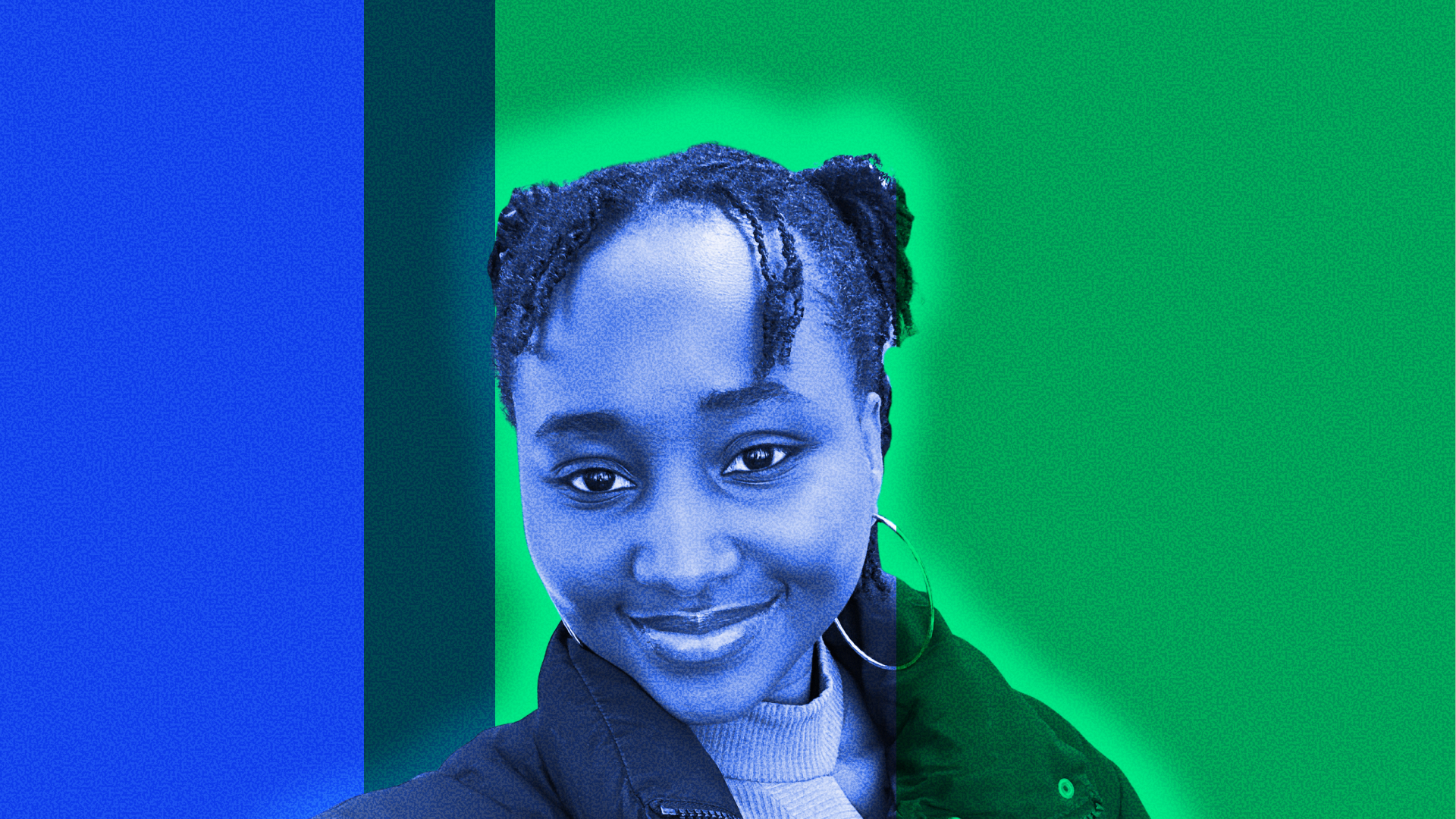Sayo Agunbiade’s voice crackles through the video call as she explains why she almost didn’t show up to interviews before leaving Nigeria.
“I hate feeling like I don’t have much to offer,” she admits, over a call
“If I feel like I’m going to mess something up, I will just try to avoid it.”
It’s the kind of confession that would surprise anyone who knows her now—co-founder of a thriving women-in-data community, grant-winning researcher, and the type of person who turns down job offers because they don’t align with her values.
Especially coming from a country where many people choose jobs based on pay, not passion, and career plans shaped more by necessity than choice.
But Agunbiade’s career didn’t follow the usual map. If anything, she got good at listening to what didn’t sit right.
If this is a strategy, let’s call it: The Sayo Agunbiade Way.
Before data, there was design
Twenty-something years ago, Agunbiade’s hands moved across paper, sketching buildings that existed only in her imagination. Architecture called to her the way it had called to her father—both drawn to the intersection of art and structure, creativity and precision. She could see herself designing spaces and making something lasting.
But one conversation changed her course.
“My dad said architecture is not really for ladies,” Agunbiade recalls, her tone matter-of-fact, not bitter. “He mentioned that he knew women worked in architecture, but they get propositioned by men in the field.”
That single conversation nudged her in a direction she hadn’t planned.
Split between Ogun and Lagos growing up, with parents who lived apart and a mother who passed on job offers to raise three kids, Agunbiade learned early that plans change.
With Architecture off the table, she followed her sister’s path into Economics at Babcock University.
“I enjoyed Economics in secondary school,” she says. “So I didn’t mind studying it at Uni after my architecture plans fell through.”
It wasn’t the job, it was the tools
Fast-forward past internships at Citibank and KPMG, through a finance path that looked perfect on paper but felt flat in real life. Agunbiade had mapped her future in her phone notes app: the companies, the milestones, the climb from Nigeria to international finance.
Everything was going according to plan until Procter & Gamble (P&G) gave her something unexpected: a supply chain internship. It wasn’t the typical sales role they gave to interns, which would’ve required her to relocate to Ondo State.
It wasn’t part of the plan, but it sparked something.
“When I started using those data analytics tools, I enjoyed what I was doing,” she says, referring to her early experience with Excel and Power BI. “For once, the work felt good.”
She interned at P&G for 18 months. That kind of duration usually hints at a full-time offer, but the economic recession and company restructuring led to a hiring freeze.
“That experience gave me permission to change paths,” she says. After P&G, she joined Suplias, an early-stage startup, as a finance analyst managing the company’s finances. Even then, she already had her sights set on transitioning into data science full-time. As she was plotting her next move, her dad stepped in.
“He suggested I do my masters,” she explains. “So I just said, I’ll do a master’s in data science—as a way to fully transition.”
In many Nigerian households, parents steer their children toward careers they once dreamed for them—banker, doctor, lawyer, engineer—whether or not those dreams still fit.
Agunbiade’s father initially resisted her decision to pivot, especially since she was already pursuing the Institute of Chartered Accountants of Nigeria (ICAN) professional exams. But she remained firm in her choice to follow her passion for data science.”
Doing Master’s in London
London brought about a different kind of learning. There were visa rules that made recruiters hang up. Events where she walked in knowing no one. And obviously, the classroom was different too—less about memorising and more about building arguments from scratch.
“There was some culture shock,” she says. “We’re asked not to just define things but to do a lot of research on your own.”
Still, somewhere between adapting to the system and finding new rhythms, something clicked. Agunbiade landed a grant-funded dissertation project with a men’s health nonprofit, studying high-risk areas for prostate cancer.
“It was a worthwhile experience,” she says.
The work stood out. It tied technical skills to something tangible. The organisation used her work to apply for additional funding to support their efforts in prioritising prostate cancer screening in high-risk areas. It helped her see what kind of data work felt worth doing.
And while the job hunt that followed came with its own barriers, she kept going. Somewhere in between research, rejection, and small wins, she started to collect patterns—not just in data, but in her approach.

Building something that lasts
If London sharpened her technical instincts, the job hunt refined her sense of community.
Alongside the data patterns she’d been chasing, Agunbiade began noticing another pattern: how isolating the industry could be, especially for women of colour.
So she and two friends tried something different. Not another networking event where everyone swaps LinkedIn handles and vanishes, but something “more close-knit.”
“We wanted a space where you could actually talk about the things you’re dealing with at work, ask for advice, find a mentor,” she says.
Their first event for the Women in Data Network was held in a founder’s home. It worked, but it felt too personal.
“Even I wouldn’t want to go to someone’s house for a professional event,” she says, laughing.
That early test helped them shift course. Over time, they partnered with companies like Cloudflare who now compete to host their quarterly sessions. The sponsors brought legitimacy and also made things less expensive.
“Venues, snacks, speakers, these cost money, and it’s all been out of pocket,” she says.
But Agunbiade isn’t in a hurry to turn the initiative into a profitable venture or chasing large numbers.
“If 100 people are part of a community and not gaining anything, the purpose is lost.”
What she tracks instead: who keeps showing up. Who reaches out after? Who says the event helped?
“We’ve seen repeat attendees. That tells me it’s working.”
The model’s still evolving. But it’s doing the job.
Outside the community, she also teaches with Code First Girls, a bootcamp for women and non-binary people breaking into tech. She also volunteers with Code Your Future, a non-profit helping refugees/asylum seekers transition to tech, either reviewing code or developing a learning syllabus for students. It’s another layer of the same pattern: skills turning into jobs, short classes sparking long-term change.
“People come back to say, ‘I got a role, thank you,’” she says. “That part’s hard to top.”

What’s tangibly ahead
Now working as a data specialist at RS Group, Agunbiade balances technical work with teaching and running the community she helped create. “I’m still figuring it out,” she says. “For now, I just want to keep doing what I like—teaching, helping people, building spaces that feel useful.”
For the community, the numbers are steady by design: four successful events since September with 15-20 people per session, sponsors returning. But what matters more are the people who come back, the ones who find jobs, or stay after to ask questions over coffee.
She’s also thinking about a PhD—not for the title, but for the questions it would let her ask. That’s been her pattern all along: following curiosity over credentials, pace over pressure.
The architecture dreams haven’t vanished either. They’ve just taken on a new form, less about buildings and more about foundations. She’s still designing things. They just look like safe spaces, learning loops, new starts.
Get passive updates on African tech & startups
View and choose the stories to interact with on our WhatsApp Channel
Explore




